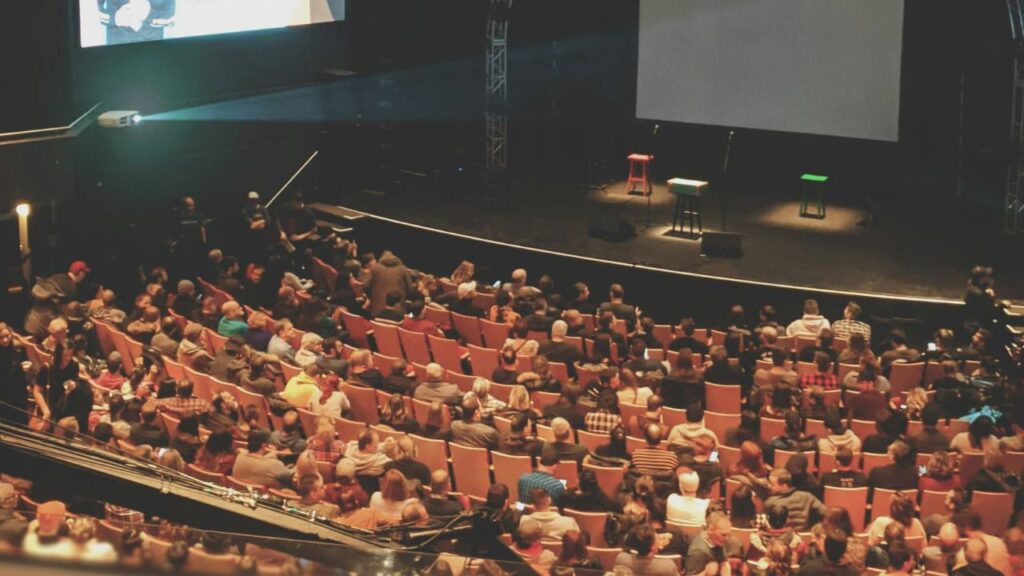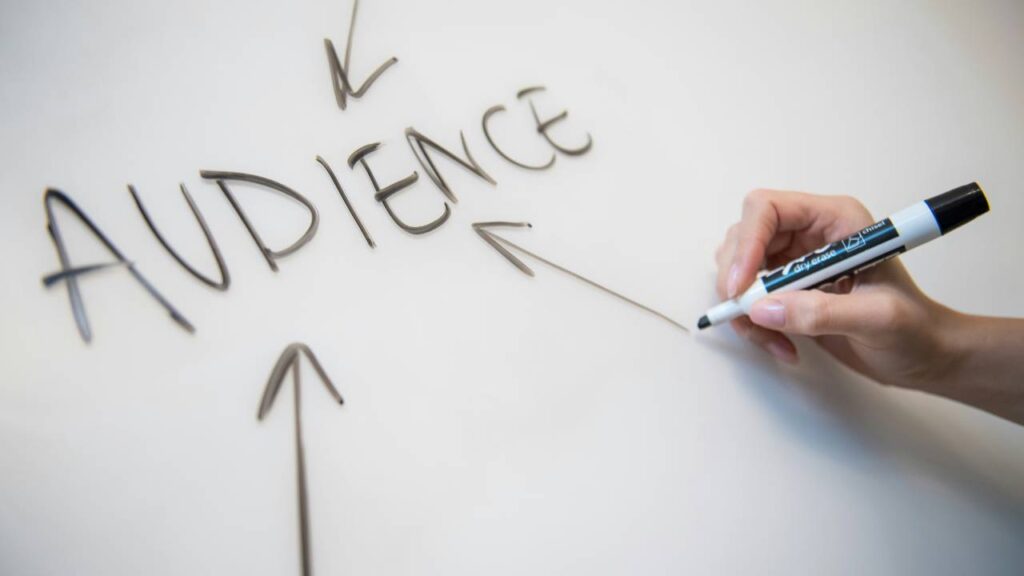
Hosting a memorable business conference is an exceptional opportunity to boost your brand’s visibility and establish your company as a leader in your industry. It’s about creating an environment where attendees can engage with your content, network with peers, and walk away feeling enriched. Planning such an event requires a careful balance of attention to detail and a strong grasp of the big picture.
You’ll want to consider what your goals are for the conference, what vision you have for its impact, and how you plan to bring that vision to fruition. This means not only thinking about the needs and expectations of your attendees but also about the message you want to communicate through every element of the conference—from the keynote speeches to the interactive sessions.
As you prepare to bring professionals together under one roof, it’s essential to ensure that every aspect of the conference is tailored to facilitate knowledge sharing, inspire innovation, and foster connections that extend well beyond the event. The roadmap to a successful conference lies in a strategic plan that focuses on quality content, seamless logistics, and a warm atmosphere that encourages participation and dialogue.
Defining Your Conference Objectives
Before you embark on the journey of hosting a business conference, you must have a clear roadmap. Defining your objectives and understanding the key ingredients for a successful conference are imperative.
Identifying Target Audience
Your conference is designed to cater to a specific group of professionals, organisations, or industry leaders. Emphasising on identifying your target audience ensures that your conference content is relevant and engaging. You ought to know their interests, professional needs, and the challenges they are looking to overcome. This knowledge shapes every aspect of your conference plan, from the speakers you invite to the workshops you arrange.
Setting Clear Goals and Milestones
To organise a successful conference, you should set tangible goals and milestones. These act as checkpoints to assess the progress of your event planning. Your goals might include numbers related to attendance, the calibre of guest speakers, or the amount of sponsorship secured. Each milestone achieved is a step toward executing a purposeful and impactful conference. Remember to keep your goals specific, measurable, achievable, relevant, and timed (SMART) to ensure you can evaluate the success of your conference post-event.
Strategic Planning and Budgeting
In order to host a successful business conference, strategic planning and your budget are critical. They set the stage for a well-executed event, ensuring you have the foresight to address all necessary details.
Creating a Detailed Timeline
Your conference won’t come together overnight; it’s crucial to devise a thorough timeline. Start by marking out key milestones—the venue booking, keynote speaker confirmation, and the release of promotional materials. Your timeline should allow for enough cushioning to handle any unforeseen delays while keeping your planning on track. Assign dates for these milestones and monitor them closely.
Allocating Budget for Fixed and Variable Costs
When planning your budget, distinguish between fixed and variable costs to manage your finances more efficiently. Fixed costs include the venue rental, speaker fees, and basic audio-visual equipment, as these expenses are unlikely to change. On the other hand, variable costs such as catering, marketing expenses, and attendee materials may vary depending on the number of participants. Keep a cautious eye on these figures and allocate your budget to ensure you cover both fixed and variable costs evenly.
Venue and Date Selection

When you’re planning a business conference, the choice of venue and date is vital. These decisions will shape the entire event and influence the experience of every attendee.
Choosing the Right Location
Your conference location sets the tone for the event. Consider a place that’s easily accessible, with strong transport links whether participants are local or travelling from afar. If your conference targets international delegates, a venue close to an airport might be ideal. Think about the attractiveness of the location too; a picturesque or prestigious spot could boost attendance. Ensure there are ample accommodations nearby, which come in a range of price options to suit all budgets.
Securing a Date and Venue Capacity
Finding the right date is a delicate balance. Avoid clashing with major holidays or industry events that your potential attendees might choose over yours. It’s also prudent to check the venue’s capacity aligns with your anticipated number of guests. A space too small can feel cramped and hinder networking; too large, and the conference might seem poorly attended. Verify that the venue can cater for your expected numbers, including meeting rooms and exhibition spaces, and that they have amenities such as high-speed internet and audio-visual equipment that meet the technical demands of your conference.
Operational Logistics and Team Management
In hosting a memorable business conference, it is crucial that you manage your operational logistics and team to ensure a seamless event. Your success hinges on meticulous planning and execution in these areas.
Coordinating Event Staff and Volunteers
Your event staff and volunteers are the backbone of the conference. To efficiently manage your team:
- Align Roles with Skills – Assign duties based on each individual’s strengths and experience. For instance, tech-savvy volunteers should handle AV equipment while those with hospitality experience can assist in guest relations.
- Clear Communication – Ensure that every team member understands their responsibilities and the overall conference agenda. Tools such as walkie-talkies or group messaging apps can keep everyone connected.
- Scheduling – Create a detailed schedule that includes breaks and overlaps to handle unforeseen circumstances.
- Training Sessions – Conduct briefings before the event to ensure everyone is on the same page concerning protocol and emergency procedures.
Managing your team effectively ensures that every aspect of the conference runs smoothly, from registration to the final keynote speech.
Handling Catering, Technology, and Equipment
Professional event production matters for your business. You should coordinate with your chosen services well in advance, taking into account special dietary requirements and the schedule of the conference to ensure timely delivery and setup.
With technology and equipment, having a competent technical team is essential. They must be able to operate and troubleshoot the systems used. It’s advisable to have a rehearsal to test the equipment. Additionally, working with a reputable supplier, such as Vinehall Dublin, can guarantee that you have quality staging, exhibition stands, and other necessary equipment for your conference.
Making certain that these logistical elements are smoothly handled will greatly contribute to your conference’s success. Properly managing your operational logistics and team allows participants to focus on the content and networking opportunities of your event.
Marketing and Promotion

Effective marketing and promotion are the keystones to attracting your desired audience to your business conference. By integrating smart strategies across various platforms, you ensure your event stands out.
Utilising Social Media and Email Marketing
Social media empowers you to reach a broad demographic, promoting your conference with precision and creativity. Platforms like LinkedIn are particularly useful for business events. You might want to create event pages or hashtags to foster a sense of community. Timely reminders and updates keep potential attendees engaged and informed.
Email marketing remains a powerful tool, offering personalised invites and information about the conference schedule, speakers, and registration process. Your emails could contain links to your website for easy access to more details and sign-up options.
Branding and Advertising Strategies
Consistent branding across all promotional materials helps in creating a memorable identity for your business conference. Ensuring that your advertisements, whether online or in traditional media, align with your event’s theme and values, helps in carving a niche in the market.
When you design the conference’s website, prioritise clarity and navigation so potential attendees can easily find information and register. High-quality visuals and a streamlined process will reflect the professionalism of your event.
Advertising should also address the unique selling proposition of your conference—why it’s an unmissable event—and target the appropriate audience through tailored ad placements and strategic partnerships.
Organising the Content and Speakers
Organising your conference content and selecting the right speakers play pivotal roles in setting the tone and success of your event.
Curating the Agenda and Sessions
When piecing together your agenda, consider the conference theme closely and ensure each session aligns with it. You’ll want your sessions to cover a range of topics that not only resonate with the theme but also offer valuable insights and professional development opportunities. You may include a mix of workshops for hands-on experiences and panel discussions for a variety of perspectives. Sequence them in a way that allows for ample breaks and networking opportunities.
Engaging Keynote Speakers and Panellists
Your keynote speaker is the jewel in your conference crown. This individual should embody the spirit of your conference theme and be capable of drawing attendees. Secure somebody who is not just an expert, but also a compelling orator. When forming panels, select professionals who can engage in meaningful dialogue and represent different viewpoints within the industry. Your speakers and panellists should be adepts at fostering an environment of learning and inspiration.
Enhancing Attendee Experience

Creating an enriching environment for attendees at your conference hinges on providing ample networking opportunities and integrating interactive elements that boost participation and engagement.
Networking Opportunities and Breakout Sessions
You’re attending a conference to make connections, find collaborators, and exchange ideas. Cater to this need by arranging well-thought-out networking opportunities and breakout sessions. Craft your agenda to include designated time slots for attendees to engage in focused discussions within smaller groups. Ensure that these breakout sessions are diverse and relevant to the conference themes, allowing participants to delve into specific topics that pique their interest. The key is to facilitate an atmosphere where you can effortlessly connect with like-minded individuals and industry peers.
Incorporating Interactive Elements
Engage your audience by weaving interactive elements into the fabric of your conference. Use live polls during presentations to receive immediate feedback and generate lively discussions. Follow poll results with Q&A segments where you can further explore the topics raised by your audience. Additionally, encourage the use of event apps that offer gamification features. They can boost attendee interaction as they participate in challenges, quizzes, and surveys that complement the sessions. These dynamic elements ensure that your experience is not just informative but also engaging and memorable.
Post-Conference Review and Follow-Up
After your business conference wraps up, taking the time to review its success and staying connected with attendees is crucial for fostering lasting relationships and continuous improvement. What you do after the event can be just as important as the planning and execution beforehand.
Gathering Feedback and Measuring Success
Your first step post-conference is to obtain detailed feedback from your attendees. You can do this by sending a well-crafted survey that measures their satisfaction with various aspects of the conference. It’s imperative to ask specific questions to understand what works and what might need tweaking for future events. Compile the responses you’ve received and pay close attention to any common themes that emerge. These insights will guide you in quantifying the success of the conference and in making informed decisions moving forward.
Maintaining Momentum with Post-Event Engagement
Keeping the lines of communication open with your guests after the conference is essential for sustaining the momentum you’ve built. Initial follow-up communications can include a thank-you message for attending and perhaps a highlight reel or a link to photographs from the event. Subsequent messages might involve sharing resources related to the conference content or opportunities for continuing the conversations started during networking sessions. This continued engagement helps to fortify the connections made and lays the groundwork for a robust professional network. Remember to keep these communications timely and relevant to keep your attendees’ interest piqued.
Conclusion
When you’re set to host a corporate event, the sum of the parts truly makes for a memorable experience. Ensuring that each element of your business conference is thoughtfully considered and executed can leave a lasting impression on your attendees. Your attention to detail will reflect positively on your company’s brand and commitment to professional excellence.
Timely communication, venue selection, speaker choice, and networking opportunities are key components that require your diligent planning. Your ability to harmonise these aspects creates an environment conducive to learning, engagement, and collaboration. Remember that the quality of your event can foster meaningful connections and potentially drive future business opportunities.
Leverage technology to enhance the attendee experience; a smooth registration process and access to digital resources are modern expectations. Your effort in hosting a corporate event is a testament to the value you place on relationship building and knowledge exchange within your industry.
Your aim is simple: to organise an event that not only meets but exceeds the expectations of all participants. By actively seeking feedback and reflecting on your successes and areas for improvement, you are well-positioned to make your next conference even more remarkable. Keep focused on what matters most – creating a professional and enriching atmosphere that speaks volumes about your organisation’s dedication to excellence.

